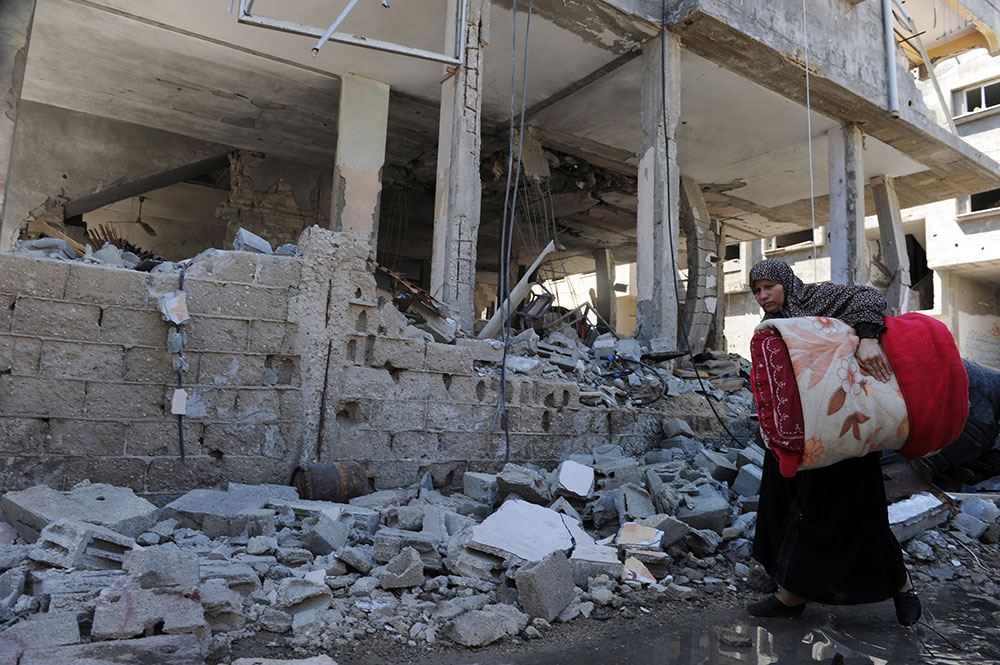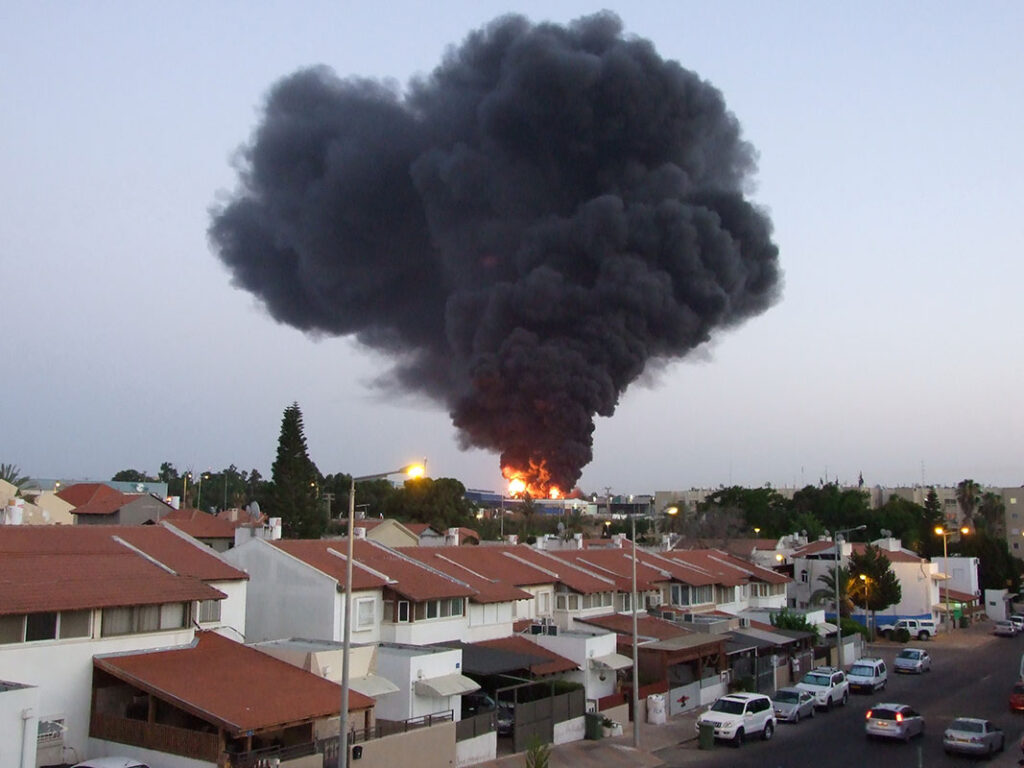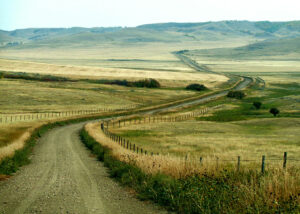What is God’s plan for Israel? It would be presumptuous for me to say that I have a definitive answer to that question. If I did, I would likely be appointed ambassador to Israel or special consultant to the United Nations!
But I did grow up in a family that believed God has a special plan for Israel. We believed that Israel was theologically more important than other nations. As a child, I relished the Old Testament stories I learned in Sunday school about how God helped Israel conquer the land of Canaan. Joshua and the people marched around the city of Jericho, and the walls came tumbling down! Gideon, with just 300 soldiers, sent the Midianites running. David brought down Goliath with a slingshot. I believed that God was certainly on the side of the Israelites!
A short history lesson
When I was 11 years old, the modern nation of Israel was formed, and I was excited! I believed that God was giving the land of Israel back to his people.
The establishment of the State of Israel seemed like the most significant event since the ascension of Jesus. I grew to believe that Israel was theologically more important than other nations.
The Jewish people have been grossly mistreated throughout much of history. During the Middle Ages, a belief arose in Europe that the Jews were directly responsible for the crucifixion of Christ. This led to the massacre and expulsion of Jewish communities during the Crusades and also at other times. Even the great Protestant reformer Martin Luther once encouraged his followers to burn Jewish synagogues and schools, destroy their prayer books, forbid their rabbis to preach, and to confiscate their homes and property. During the Second World War and the Holocaust, more than six million Jews were imprisoned and executed in a variety of horrible ways.
In 1896, Theodore Herzl, a secular Jew, proposed that a nation be formed for the Jewish people. Herzl was less concerned with where that nation was located—it could be in Uruguay or in the Ukraine, for all he cared—as long as it was a place where the Jews could be safe.
Later, an Anglican pastor named William Hechler came to believe that Herzl had been sent by God to fulfill prophecy as he understood it. Along with many others of the time, he believed that the entire Bible should be interpreted through the eyes of Israel. This dispensational and Zionist view was popularized in the 20th century through the release of the Scofield Reference Bible (1909), the founding of the Dallas Theological Seminary (1924), and the release of the Ryrie Study Bible (1978). Popular fictional authors such as Hal Lindsey (The Late, Great Planet Earth) and Tim LaHaye (the Left Behind series) have also influenced the minds of millions of people by interpreting the future of the world in light of present-day Israel.
These authors, scholars and theologians believe that God gave Israel a special tract of land and that Israel must repossess that land in preparation for the return of Christ. Under this model, those who help Israel in this endeavour will be blessed, while those who oppose her will be cursed.
To understand and evaluate these views, four basic questions need to be answered:
1. What land did God give to Israel?
As I examine Scripture, I find three different sets of land boundaries.
The first description is found in Genesis 15:18, where God says to Abraham, “To your descendants I give this land, from the river of Egypt [the Nile] to the great river, the river Euphrates.”
The second description of boundaries is found in Numbers 34:1-12, where Moses says that the land God is giving the people will stretch from the Mediterranean and the Dead Sea in the south to parts of Syria and Lebanon in the north.
The third description appears in Joshua 1, where Joshua divides up the land of Canaan between the 12 tribes. Those lands include not only present-day Israel, but also parts of Jordan, Lebanon and Syria.
Given this variety in boundary descriptions, it is impossible to draw a precise map of the specific land that God would have promised to Abraham and his descendants.
Three further items need to be examined:
• In Genesis 15:18, God tells Abraham that he is giving the land to Abraham’s descendants, which would have included both the children of Ishmael and the children of Isaac. God blessed them both and promised that they would become great nations (Genesis 17:20). Might that mean that the land actually belongs to both the Arabs and the Jews?
• God’s promise to Abraham and his descendants was part of a covenant, and therefore conditional. Time and again, Moses and the prophets warned that if the Israelites were to remain in the land, they needed to live up to their part of the agreement to obey and honour God (Exodus 19:5, Numbers 32:11, Ezekiel 33:21-29).
Israel actually lost the land at least four times in their history due to their unfaithfulness: in 722 BC to the Assyrians; in 576 BC to the Babylonians; in 332 BC to Alexander the Great and the Macedonians; and in 64 BC to the Romans.
Finally, in AD 70, at the end of the First Jewish-Roman War, the Roman armies under Titus lay siege to the city of Jerusalem and destroyed its walls and Temple. The Romans ruthlessly drove nearly all the Jews out of the Holy Land and sold many into slavery. As a result, the Jews were without a homeland for nearly 2,000 years.
They were like us Mennonites, who have convictions but no particular country or location to call our own.
• Abraham entered the land peacefully. In Genesis 15:19-21, it says the land was already occupied by “the Kenites, the Kenizzites, the Kadmonites, the Hittites, the Perizzites, the Rephaim, the Amorites, the Canaanites, the Girgashites and the Jebusites.”
Were these 10 nations or people groups to be driven out of the land? Were they to be slaughtered? No. Abraham came in and lived peacefully with them. In fact, his presence was a blessing to those who occupied the land. Rather than take away from the people, he added value to their lives.For example, when his wife Sarah died, he bought a burial site from the inhabitants (Genesis 23).
Hindsight says that if the Jews had entered the land peacefully in 1948, as Abraham had entered it 4,000 years earlier, things would be very different today. The Jewish people, with all the skills they had acquired in Europe, could have been a great blessing to the Palestinians who occupied the land. Together, they could have made the country flow with milk and honey!
Unfortunately, this did not happen. The oppressed Jews of Europe had been enticed with the statement, “A land without a people for a people without a land.” But this was not true! There were some 800,000 Palestinians occupying the land of Palestine, and they had lived there for centuries, some dating back to the time of Pentecost!
When the Israeli forces entered the region that had been granted to them, they did not do so peacefully. They destroyed more than 400 villages and forced more than 700,000 men, women and children to run for refuge.
Palestinians call this the Nakba, or “the tragedy.” It’s their equivalent to the Holocaust. Ever since this time, the Palestinian people have been asking for justice in regard to the land and livelihood that were taken from them, but each day more of their land is taken by the Israelis to build illegal settlements.
Those who had been oppressed in Europe became the oppressors of the Palestinian people. While I do not support the violent actions of Hamas and other groups, I can understand why the Palestinians have at various times during the last 60 years lashed out against the Israelis with stones, suicide bombs and rockets.
2. Who are the Israelis and the Palestinians?
Even when the ancient Israelites lived in Egypt, they were a very mixed people group. Judah had married a Canaanite wife, Joseph an Egyptian, and Moses a Midianite. Later, Solomon married wives from many foreign countries. We also have records in the Bible of women such as Rahab, Ruth, and the 32,000 Midianite virgins in Numbers 31:35 who became mothers in Israel.
Intermarriage continued as the Jewish people scattered throughout the nations of the world. As a result, modern Israelis are a mixed group of people. They are largely Europeans living in the middle of the Middle East.
The Palestinians recognize this fact and rightly ask, “Why do we have to give up our land and rights to these Europeans? We weren’t responsible for the Holocaust!” The Israelites, on the other hand, say, “If we were surrounded by democratic Europeans, we wouldn’t be having all these problems!”
The Palestinians, for their part, also represent a mixed group of people. Their ancestry can be traced back to the Canaanites, Moabites and Philistines of the Bible, and also to the Assyrians, Persians, Crusaders and Romans, who from time to time, invaded their land—and stayed there.
Some suggest that if DNA tests were taken in the region today, there would be greater similarities between King David and the Semitic Palestinians than between King David and the largely European Israelis.
All of this reveals that the Jews and Palestinians are cousins, yet people still say that the Jews are a “chosen” people and that they are special.
3. What does it mean to be God’s chosen people?
In Deuteronomy 14:2, God tells the Israelites, “You are a people holy to the Lord your God; it is you the Lord has chosen out of all the peoples on earth to be his people, his treasured possession.” Why did God select this particular people group to be chosen in this way?
God did not choose the children of Israel because they were better or more special than other people. No, they were chosen for a mission! In Genesis 12:2-3, God described that mission to Abraham when He said, “I will make of you a great nation, and I will bless you, and make your name great . . . and in you all the families of the earth shall be blessed.”
Later, in Exodus 19:6, he told the people, “You shall be for me a priestly kingdom and a holy nation.”
From the very beginning, God wanted all the peoples on the earth to be blessed and to be part of his family. These verses lead me to believe that in Abraham’s time God was already giving the Great Commission to people of faith! He called Abraham to the land of Canaan and gave him a worldwide mission.
Canaan—or Israel—is strategically located for just such a mission. The Middle East is where the continents of Europe, Asia and Africa come together. Over the years, Israel has served as a land bridge for travel, trade and communication to and from the known world. I would like to propose that the land to which God was calling Abraham was to serve more as a base of operations than as a place to settle for all time.
It is exciting to note that when God chose to come to earth in the form of Jesus Christ, he chose the exact same location: the land of Canaan or Israel!
While the children of Abraham failed to carry out the Great Commission, God did not totally reject them. He came as a Jew to the Jewish people. He chose twelve apostles from among them not because they were better or special, but because he had a mission for them to perform.
In Hebrews 11 we learn that, from the beginning, God has blessed people according to their faith. God does not have two chosen peoples. He does not have one group of individuals—the Jews—who are chosen because they can trace their ancestry back to Abraham, and another group—Christians—who are chosen because of their faith in Jesus Christ. In Galatians 3:28-29, the Apostle Paul said to both Jews and Gentiles, “There is no longer Jew or Greek, there is no longer slave or free, there is no longer male and female; for all of you are one in Christ Jesus. And if you belong to Christ, then you are Abraham’s offspring, heirs according to the promise.”
God’s plan is for the people of Israel—like the rest of us—to come into his family through faith, not by works or ancestry. Peter said to the church, “You are a chosen race [chosen for a mission!], a royal priesthood, a holy nation, God’s own people, in order that you may proclaim the mighty acts [the Great Commission] of him who called you out of darkness into his marvellous light” (I Peter 2:9).
4. Is there a solution to the violence?
Jews and Arabs lived together in Palestine in relative peace for hundreds of years, until 1948. The current conflict between the Israelis and Palestinians is not between the Jewish, Christian and Muslim faiths, nor is the conflict between two races of people.
The key reason behind the conflict is that two ethnic people groups who have the same ancestry are claiming the same territory as their homeland. In 1947, the United Nations gave a group of primarily European and American peoples—the modern-day Israelis—land that had for centuries belonged to another people group—the modern-day Palestinians.
The bigger issue is what can be done about the problem? Three solutions have been proposed.
• The “one-state solution.” Many Palestinians, and even some Jews, feel that this is the best solution.
Under this plan, more than six million Jews and 4.3 million Palestinians who currently reside in Palestine/Israel would join together to become one democratic nation. Palestinians and Israelis would have equal citizenship, equal rights and equal access to owning the land in this new nation.
This proposal would give the Palestinians a new livelihood and the Jews a safe place to live. However, it would require the Israelis to give up being a strictly Jewish state, which most are not willing to do.
• The “two-state solution.” The two-state solution calls for Israel to withdraw to borders agreed upon by the United Nations and recognize the present occupied territories and Gaza as the State of Palestine.
The two states would exist side by side, with both having a seat in the United Nations. Jerusalem would be jointly administered as a centre for all three monotheistic faiths.
The problem with this solution is that there is hardly enough of the original Palestine left to establish a viable Palestinian state. In 1946, Palestinians owned 88 percent of the land. A year later, UN workers planned to divide the land 50-50. However, in 1948, Israel ended up with 78 percent.
Through the 1967 Six-Day War and the subsequent establishment of more than 260 illegal Israeli settlements on the Palestinian land that they have occupied, Palestinians today control less than 12 percent of their original land. This 12 percent is divided into so many parcels that it makes the map look like a piece of Swiss cheese.
Even if a State of Palestine could be established, could it function as a country?, as it would still be almost completely surrounded and controlled by Israel?
• Leave the situation as it is currently and continue to do nothing to solve it. This is equivalent to committing genocide, as it will likely lead to the complete annihilation of the Palestinian people.
Many people compare the current segregation of the Israelis and the Palestinians to the racial segregation that existed in South African during the days of apartheid. The situation has even led to the rise of a movement called Boycott, Divest and Sanctions. Proponents of this movement ask banks, businesses, governments and churches to refuse to do business with Israel until it deals justly with the Palestinians and holds open elections, as Nelson Mandela did in South Africa.
Where do we begin?
As people of faith, we need to find a spiritual solution to the violence between the Israelis and Palestinians. Might we be reminded that it was through a prayer meeting that outgrew its boundaries that brought about the people power that toppled the Berlin Wall in 1990? Just as that wall came down, the present 700-kilometre wall of separation between Israel and Palestine also needs to be dismantled.
Might the process begin with prayer? I laughed with delight when I heard that Pope Francis had invited President Mahmoud Abbas of Palestine and President Shimon Peres of Israel to come and pray with him. Can we join with the Palestinians and Israelis in praying for a transformation and renewing of minds, hearts and actions?
Today, there are approximately 220,000 Christians living in Palestine/Israel. Of these, 63,000 are Palestinians who live in the West Bank areas and 150,000 are Palestinians who live in the land that was allotted to Israel by the United Nations. In addition, there are 10,000 Messianic Jews living in Israel. What might happen if we all join together in prayer?
But what do we pray? Repentance is always a good starting place. Perhaps the first step is for Christians to say even more clearly to the Jews, “We’re sorry. We are sorry for the way we have treated you over the centuries, and especially during the Holocaust years.” Then, to the Palestinians we also need to say, “We’re sorry. We are sorry that we have not stood by your side and that we have refused to defend your human rights and your right to self-determination.”
After repenting for our sins, we need to work at bringing justice to the region. There is much truth in the statement, “If you want to work for peace, you must work for justice.” Working for justice means removing the sources of conflict. The key source of the conflict is the occupation of Palestinian land.
The consequences of injustice are grave. For its own good, Israel needs to be helped to be more just towards the people it has conquered. A new attitude toward the Palestinians will reduce tension and help Israel gain respect in the eyes of both Arab and Western nations. If Israel does not act more justly, it will face even harder times in the future.
Through groups such as Christian Peacemaker Teams (CPT), we can move people towards justice. Its members walk frightened Palestinian children to school and, by reporting improper actions, attempt to hold Israeli soldiers accountable for mistreatment of Palestinians. Unfortunately, CPT workers have recently been forbidden entry into the region and Rachelle Friesen, who has been a peace advocate with Mennonite Central Committee (MCC) in Bethlehem for four years, was recently deported and told not to return to Palestine/Israel for at least 10 years.
Through organizations such as Mennonite Church Canada, Rabbis for Human Justice, Holy Land Trust, Bethlehem Bible College, Musalaha Ministry of Reconciliation and MCC, we can help the Palestinians to also be transformed by the renewing of their minds (Romans 12:2). These groups teach principles of peace, model reconciled relationships, and seek to give support for creative resistance.
In all of this we need to seek God’s love and compassion for both the Jews and the Palestinians and pray that these two cousins will be able to finally love each other. If we do the caring, we can be confident that God will do the curing one step at a time.
Palmer Becker of Kitchener, Ont., has spent a lifetime serving the church as a pastor, church planter, missionary, conference executive, author and educator. Becker has travelled extensively on teaching assignments to various international locations.
Accompanying this feature are discussion questions and Lord, in your mercy (a prayer for Israel and Palestine).
See also:
A constant, terrifying threat (a young person's view of life in Palestine)
Christian reflections on balance and the Middle East
Action seeks solution for Israelis and Palestinians (Mennonite Church Canada delegates affirm non-violent solutions in Israel-Palestine)










Leave a Reply
You must be logged in to post a comment.